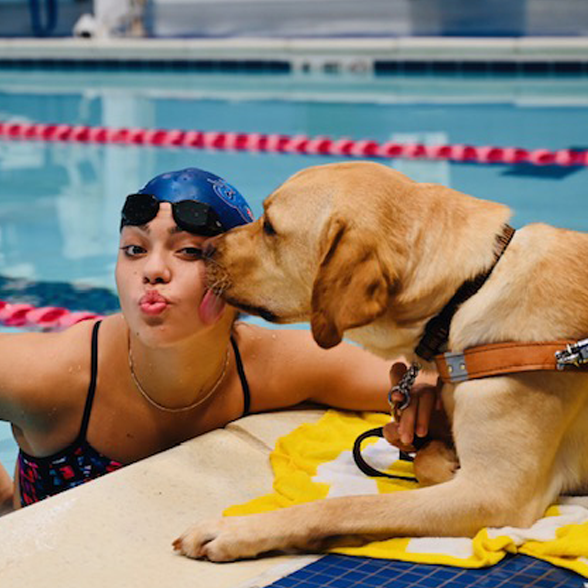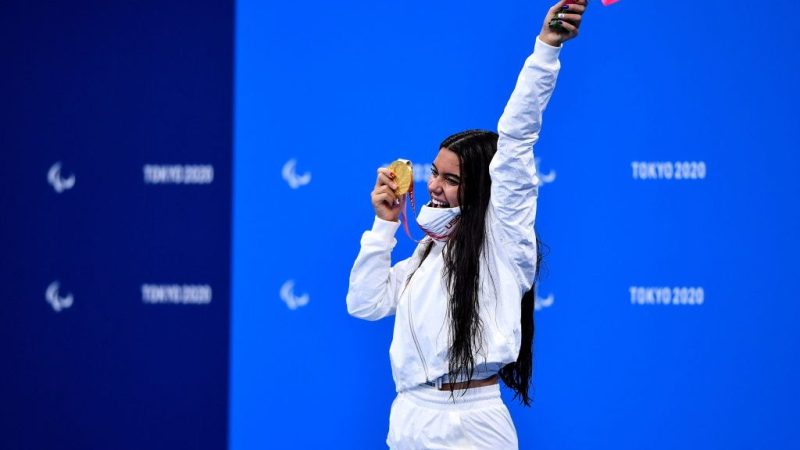
Blind Swimmer and Guide Dog are ‘Perfect Pair’ Competing in Tokyo Paralympics
17-year-old Anastasia Pagonis from Long Island, New York is competing at the Tokyo Paralympic Games this week. Pagonis, who is blind, is competing in several swimming events and just clinched her first — and Team USA’s first — gold medal when she beat her own world record in the women’s 400m freestyle with a time of 4:54.49.

Pagonis began losing her vision at 12 years old, when her soccer career began to dwindle. She said, “I was getting kicked in the face with the soccer ball too much.”
Her doctors suggested swimming instead because it would be a much safer sport for her. Now, years after becoming blind, Pagonis is a world record holder and Paralympic gold medalist, and she has brought her more than two million TikTok followers along for the journey.
Initially, Pagonis was misdiagnosed with Stargardt disease, a genetic eye disorder that results in vision loss. She actually has genetic retinal disease and autoimmune retinopathy. “My body thinks my eyes are bad and attacks my retina,” she explained.
She fell into a deep depression and quit swimming. “I felt like, ‘Why should I even live anymore if I’m going to be like this?’” Then, she discovered Molly Burke, a blind YouTuber whose videos she found comforting.
After struggling to find a swimming coach, Pagonis found Marc Danis, who spent hours in the pool with blacked out goggles to understand Pagonis’ experience. She was also paired with her guide dog named Radar. The golden lab has “changed her life.”
“I didn’t have any freedom or independence before him, and now that I have him, I feel like a totally different person,” she said on NBC Nightly News with Lester Holt.
Pagonis continues to share her journey on TikTok, where she regularly posts videos about being an athlete, makeup routines, or clips of Radar.
“I don’t have to be the stereotype of blindness. … I can do my own makeup. I can be an influencer. I can be a professional athlete,” she said. And Pagonis says she will continue “showing other people with disabilities, or people who are just different, that they can do it.”
Image source: SwimSwam, NBC Sports


 Previous
Previous
